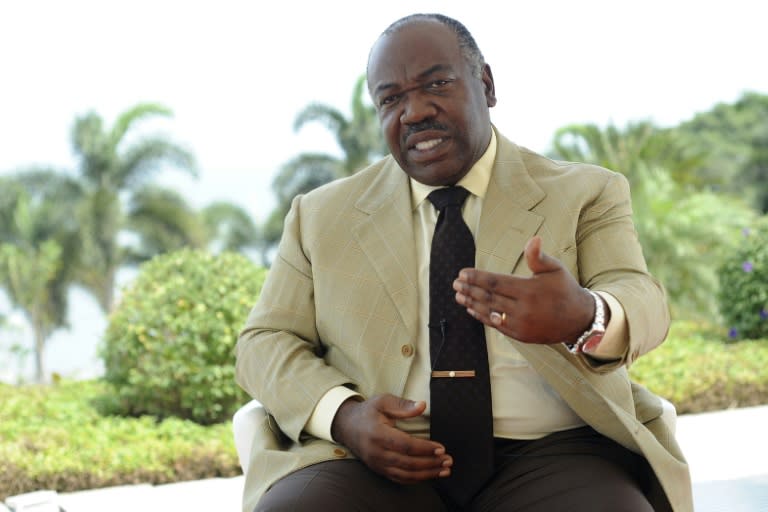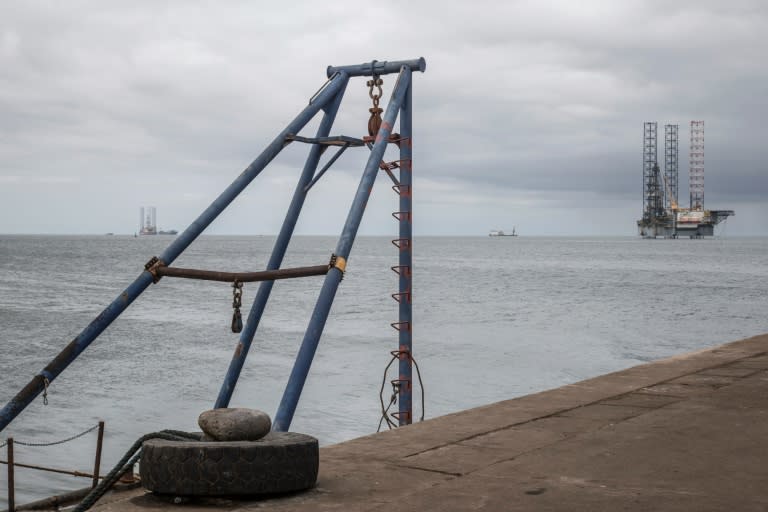Gabon looks to Asia to diversify economy
President Ali Bongo, who is seeking reelection Saturday, has turned to Asia in his bid to diversify Gabon's oil-dependent economy, but his critics dismiss the changes as largely cosmetic. The economy is a key issue in the presidential election, which Bongo hopes will deliver him a second seven-year term. In the north, a large area of forest is being cleared to make way for a rubber plantation developed by Singapore's giant Olam group as part of a $400 million investment the company says will generate 5,000 jobs in the long term. Olam is also set to build a factory to process the rubber and has invested in 100,000 hectares (247,000 acres) of palm oil plantations in the south. The agrifood group has also partnered with the Gabonese state to finance a special economic zone at Nkok, about 30 kilometres (20 miles) from Libreville, to process timber and other raw materials. Since coming to power in 2009 after the death of his long-ruling father Omar Bongo, the president has courted Asian investment to the point that former colonial power investor France has been somewhat sidelined as a favoured investor. "I've urged French companies to invest much more," Bongo recently told AFP. The continent today "attracts everybody... and Africans have a choice of partners," Bongo added. Gabon has been pumping oil since the 1960s and its 200,000 barrels a day for decades accounted for the lion's share of government revenue. But the global fall in oil prices has pushed the country to diversify its economy. Chinese companies are building dozens of projects, including roads, football stadiums and a marina. In January, a 20,000-seater stadium at Oyem, in the north, built by Shanghai Construction General, is set to host the Africa Cup of Nations football tournament. - Window dressing - In the run-up to the election, Bongo's critics have dismissed his efforts as window dressing. Despite its immense mineral and natural wealth and one of the highest annual per capita incomes in Africa at $8,300, a third of Gabon's population live in poverty. Some 35 percent of young people, according to the World Bank, are unemployed. "There were good ideas to start with," said Anaclet Bissielo, a former minister of planning who is now a key player in opposition circles. "But in the end, we realised that it's all cosmetic." "Many construction sites are at a standstill because of corruption in the current government, which has wasted resources and no longer pays the private sector," he said. Bissielo added that the current administration had done little to build up the tourism sector and had notably failed to develop 13 national parks established by Bongo's father during his 41-year stint in power. Bongo strongly defends his record. "We have been able to bring down oil's share of gross domestic product from above 40 percent to a little more than 20 percent," he said. Gabon has also launched an ambitious agricultural programme to reduce its dependence on food imports. More than 80 percent of food supplies are currently acquired abroad. The project called "Graines" ("Seeds") is meant to help thousands of families get land and titles to property so as to encourage the farming of cassava, bananas, tubers and cocoa. "At least this will allow us to eat," said Eric, a farmer near the Olam plantation. "We don't want the rubber. That's a cash crop, big business that ruins our land."



